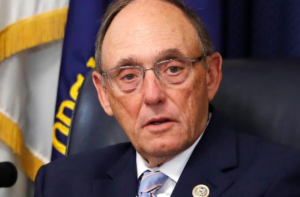By Jim Ellis

Tennessee Rep. Phil Roe (R-Johnson City/Kingsport)
Roe initially pledged to serve only five terms. He changed his mind and successfully sought re-election in 2018 saying that he had unfinished business as chairman of the House Veterans Affairs Committee. As we know, the Democrats would go onto win the majority that year, thus relegating Roe to the committee’s ranking minority member position. Losing the chairmanship virtually eliminated the foremost reason for him remaining in Congress.
The 1st District is one of the safest Republican seats in the country. The last time a Democrat was elected to the House from easternmost Tennessee dates all the way back to 1878. The longest-serving representative from the region is former Rep. Jamie Quillen (R) who held the seat for 34 years after his original election in 1962.
The 1st District occupies the eastern tail of the Volunteer State. It contains 11 counties and part of Jefferson, a domain it shares with the 2nd District that is anchored in Knoxville. The largest 1st District population centers surround the cities of Johnson City and Kingsport. Sevier County, with a population figure of just under 90,000, is the third largest segment. It contains the cities of Sevierville and the tourist centers of Gatlinburg and Pigeon Forge in the district’s southern sector.
The TN-1 electorate votes heavily Republican. President Trump carried the seat 77-20 percent in 2016. Mitt Romney defeated President Obama here, 73-26 percent, and John McCain recorded a 70-29 percent victory margin in 2008. In his six victorious congressional elections, Rep. Roe averaged 77.8 percent of the vote in what were always lightly contested general election campaigns.

 By Jim Ellis
By Jim Ellis
 Dec. 17, 2019 — Interesting decisions await as candidate filing deadlines are approaching this week in Ohio (Dec. 18) and North Carolina (Dec. 20) for their respective March 17 and March 3 primaries.
Dec. 17, 2019 — Interesting decisions await as candidate filing deadlines are approaching this week in Ohio (Dec. 18) and North Carolina (Dec. 20) for their respective March 17 and March 3 primaries. 